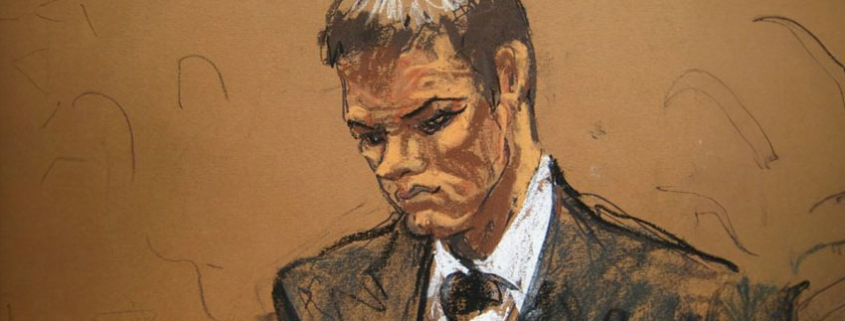The ethical implications of forensic lipreading: privacy and consent
Forensic lipreading, a technique used in criminal investigations to decipher spoken words by analysing lip movements, has gained attention for its potential to uncover crucial evidence. While it can be a valuable tool for law enforcement its use raises complex ethical questions.
The invasion of privacy
Forensic lipreading involves analysing video footage, often captured without individuals’ knowledge or consent, to extract information. This raises concerns about the invasion of privacy, especially when lipreading is applied to public or private spaces where individuals reasonably expect their conversations to remain private.
We’ve covered this topic before with the disappearance of Arlene Fraser, who’s husband was caught on CCTV talking about disposing of her body. While no sound was a recorded, a forensic lipreading expert was brought in to analyse the footage. The result was a murder conviction and a 25 year sentence.
Consent and data collection
One of the central ethical issues in forensic lipreading is the lack of informed consent from those being lipread. Unlike traditional forms of evidence collection, such as fingerprinting or DNA sampling, individuals are often unaware that their conversations are being subjected to analysis.
Everyone has a right to refuse to be recorded, unless they are in public. Even then, the footage can’t be used without permission. This opens serious questions about consent and data protection. In the case of Arlene Fraser, he husband was in prison when he was recorded, so he didn’t have the right to appeal.
Reliability and false positives
Forensic lipreading is not infallible; it can lead to misinterpretations and false positives. Ethical concerns arise when individuals are wrongly accused or incriminated based on lipreading evidence. The forensic lipreading expert in the Arlene Fraser case was Jessica Rees. Profoundly deaf, she had been involved in more than 700 criminal trials using forensic lip-reading techniques to analyse silent CCTV or police tapes, working both for defence and prosecution lawyers.
In 2005 Ress was dropped by the Crown Prosecution Service for ‘misleading’ the court over her CV. This brings into question her work on cases over the years and the resulting convictions.
Balancing justice and privacy rights
The ethical debate surrounding forensic lipreading ultimately comes down to balancing the pursuit of justice with individuals’ rights to privacy. Discuss the challenges of finding this balance and the role of legal and ethical guidelines in ensuring fair and responsible use of lipreading evidence.
Forensic lipreading presents a double-edged sword in the realm of criminal investigations. While it has the potential to uncover critical evidence, its use raises ethical dilemmas related to privacy, consent, reliability and the delicate balance between justice and individual rights. Addressing these ethical concerns is essential for maintaining trust in the criminal justice system and ensuring that forensic lipreading is used responsibly and ethically.
We have one of the best forensic lipreading experts in the UK
121 Captions founder and owner, Tina Lannin, is the UK’s foremost expert in forensic lipreading.
Tina has been the official lip reader for several public events, including the Royal Weddings of Prince William and Kate Middleton for Sky and Prince Harry and Meghan Markle for The BBC.
Tina can lipread people in cars behind her, and her speech therapists know to cover their mouths instead of turn their backs as she can still lipread them from behind!
If you need a forensic lip reader, then why settle for anything other than the best in Tina?
Not only is she the UK’s foremost expert, but she can also lipread in Spanish, German, Japanese, and Arabic!
Whether it’s scenes of a crime video, surveillance systems, closed circuit television systems, or industrial espionage prevention, we can help you discover exactly what’s going on.
Contact us today if you would like to know more about our forensic lip reading service, or any of our other specialised skills.




Leave a Reply
Want to join the discussion?Feel free to contribute!